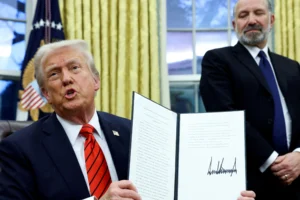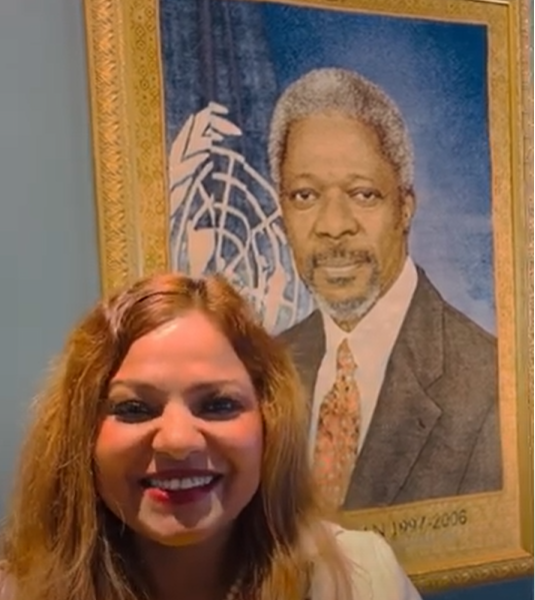Bangladesh has organised a film festival in Colombo showcasing the Muslim-majority country’s secular trend in film-making.
The Bangladesh High Commission in Sri Lanka organised the festival from Friday to Sunday.
Subjects that would be considered sensitive in South Asia, such as religious beliefs crossing traditional boundaries and relations between religious groups, are being taken up by Bangladeshi film-makers fearlessly.
According to Tanvir Mokammel, the director of “Shimanthorekha” (Borderline) on the partition of Bengal in 1947, the new trend is due to the fact that under the present Awami League regime of Sheikh Hasina, the Bangladeshi state is secular though Wahabism is creeping in among the common people in the villages due to the increasing influence of Saudi Arabia and the Middle Eastern countries where eight million Bangladeshis are now working.
Nevertheless, non-conformist cinematic themes have won wide acceptance in Bangladesh because they are handled with sensitivity and understanding.
This reflects the underlying harmony that exists between the majority Muslims and the minority Hindus, although the media, both at home and abroad, tend to portray the opposite, given as they are to highlighting conflicts rather than cooperation.
The Colombo film festival has featured six works, four of them being feature films, one long documentary, and one short film showcasing the wide range of film-making in Bangladesh as High Commissioner Riaz Hamidullah put it.
Two of the films, “Debi” (goddess), a mystery-thriller by Anam Biswas, and “Shimanthrorekha” by Tanvir Mokkamel bring out the secular trend subtly but impressively.
As the master of ceremonies Danushka Gunatilaka put it, a noticeable feature of the Bangladeshi film industry these days is the “artistry” that runs through them, irrespective of the subject of the film.
For instance, “Debi” is both a mystery and a horror film. The theme is set in a middle-class Muslim social framework but with a Hinduistic intrusion which is neatly woven into the plot.
The leading female protagonist, Ranu, gets possessed by the spirit of the Hindu goddess Rukmini under an unusual and traumatic circumstance. With the spirit of the goddesss in her, Ranu is able to predict events and aid friends in trouble. But at the same time, she is traumatised by the fear ghosts and gets into a delirium when she is seized by fear.
The clinical psychologist, Dr Misir Ali, who unravels the mystery of her behaviour and abilities through a meticulous investigation, establishes her as a paranormal person, with an early traumatic experience acting as the trigger. The phenomenon is thus delinked from religious beliefs.
The juxtaposition of the mysterious, the horrific and the normal is seamless in “Debi” which made the noted Sri Lankan actress and filmmaker, Duleeka Marapana, remark that Bangladeshi films have an “innate sense of rhythm” which makes viewing a pleasing experience.
“Shimonthorekha” (Borderline) by Tanvir Mokammel, is an absorbing documentary on the partition of India in 1947, looking at the vivisection of Bengal into a Hindu-majority West Bengal and a Muslim East Pakistan (which eventually broke away from Pakistan and became Bangladesh in 1971).
Director Mokammel had few resources when he launched this project to find out from original sources what partition meant to common people – ranging from farmers and fishermen to government servants, novelists and musicians.
He was troubled by the question as to whether the partition of Bengal into Hindu and Muslim enclaves was necessary; whether it was inevitable; whether there was an alternative to accommodate communal differences if any; and finally, who gained and who lost as the result of the surgery ordered.
Mokammel believes that the vivisection was ordered by self-seeking leaders of the Congress and the Muslim League, and Hindu and Muslim communalists and executed by Sir Cyril Radcliff who had no knowledge of the complexity of India when he blithely drew the dividing line on the map.
Mokammel interviewed a wide cross-section of families from both West Bengal and Bangladesh and asked them how they viewed the past and how they viewed the present.
The findings were complex. Some were still traumatised by the past which saw mobs killing or maiming their near and dear ones and making an inferno of their properties. Others were felt that bygones should be bygones and remembered the good things that marked their lives before the 1946, 1947 and subsequent riots which forced them to flee East Pakistan or Bangldesh.
Even though the two and a half hours long documentary was made on a shoe-string budget, Mokammel had not only shot in the two Bengals but also in various places in India and Bangladesh which were impacted by the partition and the exodus of people. The lives of people who were re-located in Assam, the Andaman Islands, the Dandakaranya forests in Odisha and even in Nainital in Uttar Pradesh, were portrayed.
People in these diverse places retraced their past, their joys and sorrows, their hopes and aspirations giving the viewers an authentic picture of the partition of the Indian subcontinent.
Mokammel bought refugees to their native villages of localities in the two countries. Interactions with locals were shot. In most cases, the migrant and the local hit it off.
Did partition create an insurmountable barrier between the Bengali-speaking Hindus and Muslims? As per the comments made by the interviewees, the answer is a firm “no”. The two sides can communicate with each other as there is much that is common, though inroads of Wahabism among the Muslims and the growing Hindutva ideology among the Hindus, have built up new walls.
Both the Muslims and the Hindus of Bengal are now subject to periodic communal political mobilization. Nationalisms demand the creation of distinct groups to define themselves clearly from the “other”. Nevertheless, despite the barriers, there is eagerness to know and interact with the “other” and build on commonalities.
But few think that partition should be undone. Refugees from Bangladesh admit that they have gained by their decision to move across the border even though at that time, it was a leap into the unknown under very unsettled conditions.
Hindus from the villages of Bengal who settled down in the towns of West Bengal especially the bustling metropolis of Kolkata, acquired an education, many going up to the highest levels in their fields. Likewise, Bengali Muslims who migrated to East Pakistan from India got new opportunities in a new country and occupied middle level and high places previously occupied mostly by Hindus who happened to be better educated during the Britsh era.
However, sadly, the vestiges of partition still remain, though only in an attenuated form. Many of the abjectly poor still remain so. They are categorized as “Permanent Liabilities” and kept in special “PL camps.”
Periodic communal conflagrations which were common when the Bangladesh Nationalist Party (BNP) was ruling in alliance with the Jamaat-e-Islami, had pushed a steady stream of Hindus across the border. According to the film this movement still happens though now it is more due to economic factors. Many of those who cross the border are Muslims seeking work in India. As per the film about 630 Bangladeshis migrate to India per day.
But these irregular, illegal and temporary migrants or those who indulge in illegal trade, get mercilessly shot at the border by the Indian Border Security Force (BSF). Bangladeshis bitterly complain that the Indian official and judicial systems do not take into account the human aspects of border crossing which is not always done by criminals, smugglers and terrorists but are done by poor people in search of a living also.
Director Mokammel himself has a dual view on the partition of Bengal. One the one hand, he recognizes the advantages of the division in terms of the opportunities it has provided for the Muslims who had to put up with Hindu domination under the Sena kings and later under British rule. But as an artiste, he is distressed by the division of Bengali speakers, as both Hindu and Muslim Bengalis are passionate about the Bengali language and Bengali culture.
The film clearly shows Mokammel’s desire for a United Bengal as proposed by Bengal’s Prime Minister Huseyn Shaheed Suhrawardy and the nationalist leader Sarat Chandra Bose. The move failed because Hindu and Muslim communal minded leaders and political opportunists in the Congress and the Muslim League wanted partition on religious lines to serve their narrow electoral ambitions.





















